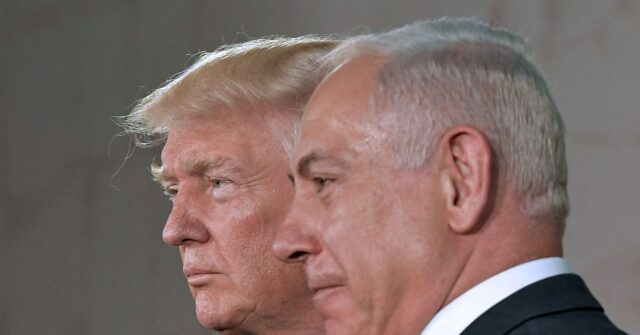President-elect Donald Trump engaged in a warm and cordial conversation with Israeli Prime Minister Benjamin Netanyahu shortly after the U.S. presidential election results were announced. Netanyahu was among the first world leaders to congratulate Trump on his unexpected victory, a win that took both American pollsters and international observers by surprise. This initial communication underscores the strong diplomatic ties between the United States and Israel, a relationship that has been a cornerstone of U.S. foreign policy in the Middle East.
During their telephone conversation, Netanyahu expressed his enthusiasm over Trump’s election, referring to it as “history’s greatest comeback” and highlighting the potential for a new chapter in the U.S.-Israel alliance. The two leaders discussed critical issues concerning Israel’s national security and the ongoing Iranian threat in the region. Trump’s stated objective is to mitigate tensions and hasten the conclusion of the ongoing conflicts in the Middle East, particularly those fueled by Iran and its proxies. This shared rhetoric suggests that both leaders prioritize regional stability and security, setting the stage for robust collaboration.
Despite significant military successes against groups like Hamas and Hezbollah, Israel continues to face challenges, notably the plight of 101 Israeli hostages still held by Hamas. While Netanyahu and Trump look to bolster security measures and counter threats, the unresolved hostage situation remains a pressing concern for the Israeli government and its citizens. The complexities of Middle Eastern geopolitics require ongoing dialogue and strategic planning to address both immediate and long-term threats, and both leaders seem committed to such an agenda.
Public sentiment in Israel appears to align with the leaders’ perspectives, as recent polls indicate significant support among Israelis for Trump over his potential Democratic opponent, Vice President Kamala Harris. The Israeli populace demonstrated their approval of Trump’s policies during his first term, particularly his stance on Israel’s right to defend itself and his recognition of Jerusalem as Israel’s capital. As Trump steps back into the role of president, the expectations for a renewed focus on U.S.-Israel relations are palpable.
Trump has also indicated his intention to reach out to Arab American and Muslim American voters by addressing conflicts, particularly the war in Lebanon. This dual approach aims to forge a broader consensus on Middle Eastern peace and stability while maintaining strong support from Israel and its allies. The complexities of the region, however, require nuanced diplomacy and an understanding of various stakeholders to achieve lasting peace.
As Trump prepares to implement his vision for his next term, the implications for U.S.-Israel relations are significant. With Netanyahu at the helm in Israel, both leaders seem poised to capitalize on their shared goals of security and stability in the region while addressing the nuances of diplomatic relations with other Middle Eastern nations. The unfolding political dynamics will be closely monitored by analysts and citizens alike as they anticipate the strategies that will emerge from this renewed partnership.

